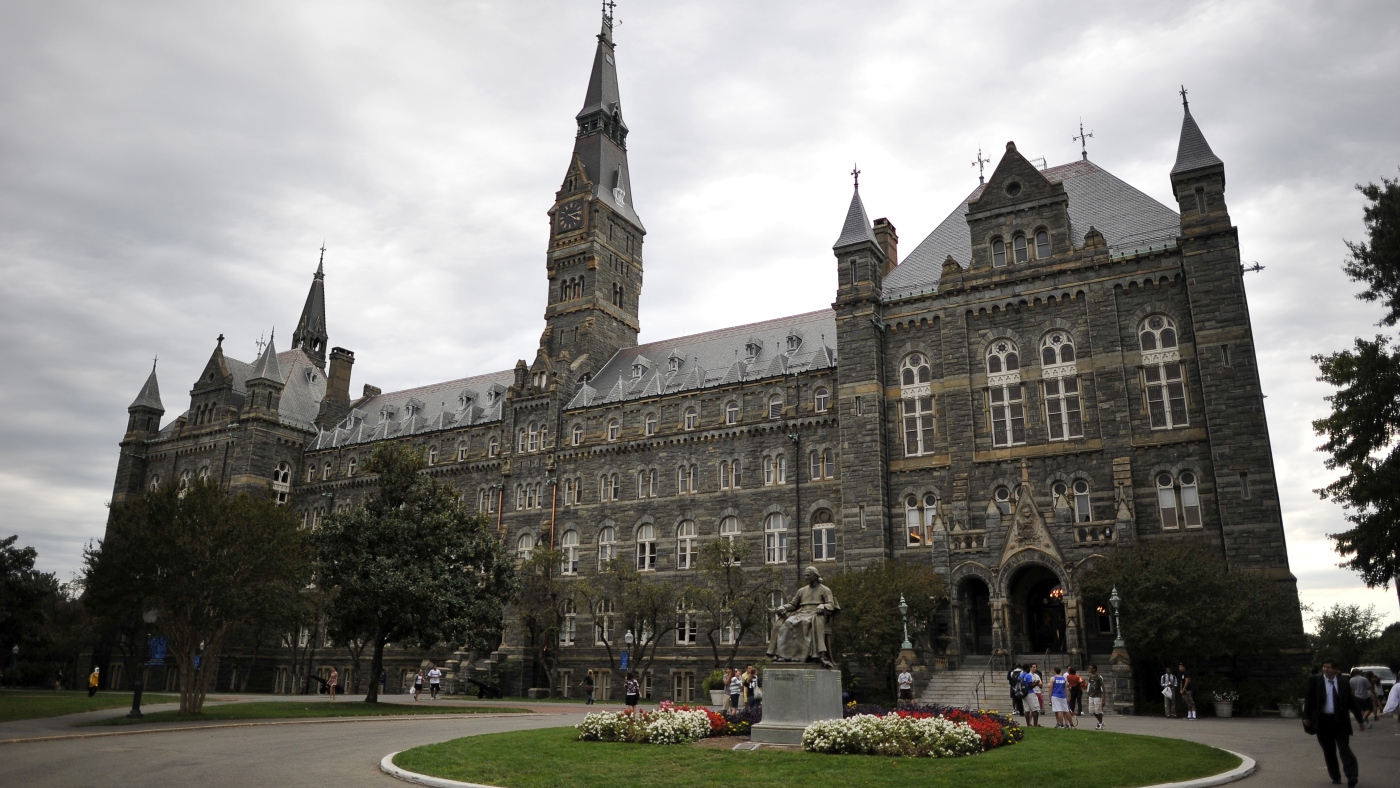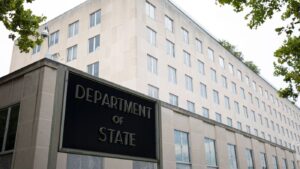An Immigration Battle: Georgetown Scholar’s Deportation Halted by Federal Judge
In a dramatic turn of events, a federal judge has intervened to prevent the deportation of Badar Khan Suri, a Georgetown University professor and postdoctoral scholar, who was detained earlier this week by the Trump administration. This development has sparked widespread attention and raised questions about academic freedom and political dissent in the United States.
U.S. District Judge Patricia Tolliver Giles, based in Alexandria, Virginia, issued a ruling on Thursday that temporarily prohibits the deportation of the Indian national, Suri. The court’s decision, however, does not grant him release from detention. His legal team continues to work towards securing his freedom, while his family remains at their home in Rosslyn, Virginia.
Suri’s case is part of a broader pattern under the Trump administration, targeting scholars and individuals allegedly linked to Palestinian rights activism or criticism of Israel. Accusations from the Department of Homeland Security (DHS) suggest Suri’s involvement in disseminating Hamas propaganda, a claim reminiscent of the situation faced by Columbia graduate student Mahmoud Khalil. More details on Khalil’s case can be found here.
The DHS, through Assistant Secretary Tricia McLaughlin, stated on X that Suri was actively promoting Hamas propaganda and antisemitism on social media, and highlighted his alleged connections to a senior Hamas advisor. Suri’s legal representatives, including the Virginia ACLU, contest these allegations, attributing the government’s actions to retaliation against his and his wife’s pro-Palestinian stance.
Sophia Gregg, ACLU of Virginia Senior Immigrants’ Rights Attorney, criticized the administration’s actions: “Ripping someone from their home and family, stripping them of their immigration status, and detaining them solely based on political viewpoint is a clear attempt by President Trump to silence dissent.” Her full statement is available here.
Who is Badar Khan Suri?
Badar Khan Suri, at the time of his arrest, was teaching at Georgetown University. He is affiliated with the Alwaleed Bin Talal Center for Muslim-Christian Understanding at the Edmund A. Walsh School of Foreign Service. His academic profile is accessible here. Suri holds a J-1 visa, designated for educational and cultural exchange programs, and earned his Ph.D. in Peace & Conflict Studies from Jamia Millia Islamia in New Delhi, India.
Georgetown University’s Alwaleed Center has publicly condemned Suri’s detention, stating, “[Suri] has committed no crime. Like Mahmoud Khalil before him, he was arrested in the context of a campaign by the Trump Administration to destroy higher education in the United States and punish their political opponents.”
What Happened?
Suri’s ordeal began on March 17, when masked federal agents, identifying as part of the DHS, apprehended him at his home, following a Ramadan meal celebration. According to ACLU of Virginia’s legal director, Eden B. Heilman, the agents did not provide any clear explanation for the arrest or inform Suri of the charges against him.
Suri, who faces no criminal charges, was swiftly relocated through various immigration centers and is currently held in Louisiana. The rapid and opaque nature of his detention has raised alarms among his supporters.
What is the Government Saying?
The DHS, through Assistant Secretary McLaughlin, indicated that Secretary of State Marco Rubio authorized Suri’s deportation on March 15, citing his activities as grounds for removal under INA section 237(a)(4)(C)(i). This approach mirrors that used against Mahmoud Khalil, according to Suri’s legal team, which claims it is a retaliatory measure against individuals with family ties or perceived criticism of U.S. foreign policy regarding Israel.
Baher Azmy, legal director of the Center for Constitutional Rights, described the administration’s strategy as “largely unprecedented” and likened it to historical periods of political suppression, such as the Red Scare and McCarthyism. More about this context can be read here.






